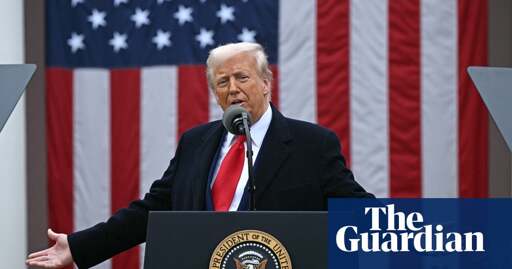Summary
Trump theatrically unveiled his new “reciprocal” tariffs plan in the White House Rose Garden, using charts and game-show-style rhetoric to justify sweeping import taxes on around 60 nations.
Framed as “Liberation Day,” the policy drew criticism for risking a global trade war and economic fallout.
Trump claimed unfair foreign trade practices and argued tariffs would revive U.S. industry, but experts instead warn of higher prices and job losses.
His approach blended populist messaging with economic nationalism, drawing both cheers from supporters and warnings from economists and global leaders.



Fixed that for them.